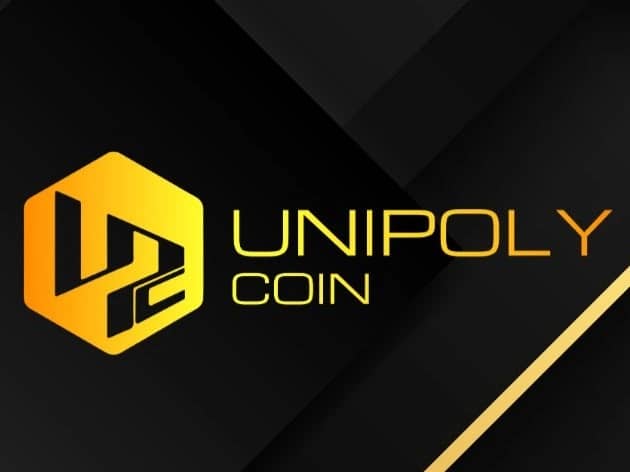订阅 wiki
Share wiki
Bookmark
Unipoly
0%
Unipoly
Unipoly 是一个基于区块链的平台,它在一个统一的生态系统中集成了游戏、社交互动和去中心化金融。它采用原生代币和治理系统,使用户能够参与开发、决策和数字资产所有权。 [1]
概述
Unipoly是一个基于区块链的项目,集成了游戏、去中心化金融 (DeFi)和社交互动。它旨在创建一个可扩展且可持续的生态系统,用户可以在其中参与娱乐和治理。该平台的结构允许用户通过游戏和社区参与来赚取收入,同时通过去中心化自治组织 (DAO)为开发和决策做出贡献。
该项目结合了游戏、去中心化媒体和 Web3 开发工具,具有代币销毁、基于参与的透明收入模型以及对数字资产(如 NFT)所有权的支持等功能。Unipoly 构建在 以太坊 上,并计划支持多链,强调用户驱动的治理、模块化架构和 AI 驱动的基础设施,以支持创作者、玩家和开发者在去中心化数字经济中构建和互动。 [6]
生态系统
Unipoly 链
Unipoly 链是一个 Layer 1 开源 区块链,旨在支持 Unipoly Coin 生态系统,专注于可扩展性、去中心化和模块化。它使用 C# 在 .NET Core 框架中构建,从 比特币 中汲取结构灵感,同时结合了混合 共识机制、轻量级虚拟机和一套开发工具。区块链 支持整个生态系统的所有核心功能,包括代币转移、质押、DAO 投票、智能合约 执行以及 GameFi 操作,如链上奖励和 NFT 市场。它还允许外部游戏工作室部署自定义链,从而保持灵活性和生态系统扩展。
Unipoly 链使用基于 UTXO 的架构和混合自适应共识模型。这包括用于不同 挖矿 参与的双重 工作量证明 和 权益证明 最终确定层,其中 验证者 投票由质押的 UNP 和承诺持续时间加权。智能检查点和权重调整后的最终确定提高了效率和安全性。该链具有用于执行 智能合约 的自定义虚拟机 (UVM),使用 UniScript(一种受 C# 启发的语言)。开发人员可以从 UniStudio、gas 估算器和测试网等专用工具中受益。面向用户的工具包括浏览器钱包、完整 节点 客户端、社交 tipbot 和去中心化身份支持,从而促进技术开发和日常使用。 [6]
Kuki 平台
Kuki 游戏平台是 Unipoly Coin GameFi 部门的核心,截至 2025 年 4 月,托管了 300 多款游戏。它使用边玩边赚模式,玩家可以通过游戏内成就、锦标赛参与和积分累积获得 UNP 代币。该平台可通过 Web、Android 和 iOS 访问,并集成了 NFT,用于游戏内物品,如皮肤、武器和角色,这些物品可以在外部交易。值得注意的游戏包括 Raidfield 2,一款具有 NFT 功能的战术射击游戏;Raidfield 3,其增强版续集将于 2025 年底推出;以及 Six Cube Mystery,一款提供链上奖励的益智游戏。 [6]
UniTribe
UniTribe 是一个面向普通用户和 区块链 参与者的 Web3 社交平台。所有用户活动(如点赞、帖子、评论和广告)都与加密激励相关联。该平台包括注册时颁发的内置 Skale 钱包。它会自动奖励用户 UNP 代币以奖励他们的互动,并使用 AI 驱动的排名系统来管理内容可见性。空投 计划将于 2025 年第三季度开始,计划在 2026 年之前完成四项社区参与任务。 [6] [7]
Unipoly.io
Unipoly.io 是一款 AI 助手,旨在增强 UniTribe 平台内的社交互动。它分析实时链上和社交活动,以提供个性化的内容推荐、热门话题、AI 生成的模因和基于上下文的参与提示。作为可选插件,Unipoly.io 支持 AI 辅助帖子创建、社区分析、交互式问答以及鼓励在整个 UniTribe 网络中更积极参与和提高可见性的工具等功能。 [6]
Gabby Birds
Gabby Birds 是一个去中心化平台,结合了约会和社交媒体功能,集成了帖子、短视频、故事、直播和 Web3 钱包连接等工具。它旨在解决传统平台中的问题,包括数据所有权问题、用户匹配透明度有限、缺乏用户货币化以及用户分类不佳。
该平台支持从 UniTribe 完全迁移用户个人资料和钱包,从而使用户可以控制其数据、NFT 和代币。它包括高级过滤选项,并根据用户在 UniTribe 上的关注者数量对用户进行排名。用户可以通过持有 UNP 代币和共享钱包来解锁其他功能,从而实现私人互动和收入生成。 [6]
Unipoly 创作者生态系统 (UCE)
Unipoly 创作者生态系统 (UCE) 是一个开发框架,支持使用 AI 驱动的工具创建 Web3 应用程序。它使没有编码经验的用户能够开发、测试、发布和货币化 去中心化应用程序。该生态系统包括三个主要组成部分: [6]
- dPanel 是一个基于 AI 的开发界面,允许用户通过输入基本参数来生成智能合约,接收基于数据的 UI/UX 建议,在实时模拟环境中测试应用程序,并对智能合约代码进行自动安全检查。
- DLib 是一个去中心化软件库,提供预构建的模块,如 DAO、NFT 市场、Web3 钱包、论坛和投票系统。这些模块遵循即插即用格式,可以通过 UNP 代币免费或在高级许可下使用,并奖励贡献者 UNP 以开发新模块。
- UniBigData 是一个数据分析系统,用于跟踪用户行为以改进 AI 推荐、生成性能报告并促进开发人员之间安全的数据共享。这使用实际的去中心化数据加强了平台的机器学习能力。
UNP
UNP 代币是 Unipoly 生态系统的 实用代币 和 治理代币,用于交易、奖励、支付和治理参与。其设计侧重于维持长期可持续性并控制通货膨胀。总供应量固定为 10 亿个 UNP 代币,锁定在 智能合约 中。超出此供应量限制,无法铸造新代币。 [3] [5]
代币经济学
UNP 具有以下分配: [6]
- 公开和私募: 30%
- 用户奖励: 30%
- 游戏和平台开发: 20%
- 区块链开发/研发: 20%
治理
Unipoly Coin 使用基于 DAO(去中心化自治组织) 的去中心化治理模型,允许用户通过 质押 UNP 代币来影响关键决策。治理权授予那些质押其代币的人,投票权由质押的数量和质押的持续时间决定。这种结构旨在鼓励长期参与并阻止短期操纵。
Unipoly 创作者生态系统包括一个治理门户,用户可以在其中查看、提交和投票提案。提案包括技术升级、经济政策变更、资源分配和合作伙伴关系决策。参与激励措施包括部分 gas 费用退款、经批准的提案的收入分成以及改进的内部声誉评分。该系统旨在使治理透明、可追溯且由社区驱动。 [6] [8]
合作伙伴
- iLuminaryAI
- Hotcoin
- AlvoSwap
- Bitsolara
- Game Terminal
- Papu Games
- HeroAI
- AriChain
- BSK
- DreamCraft
- CRTAI Network
- FortifyAI
发现错误了吗?
